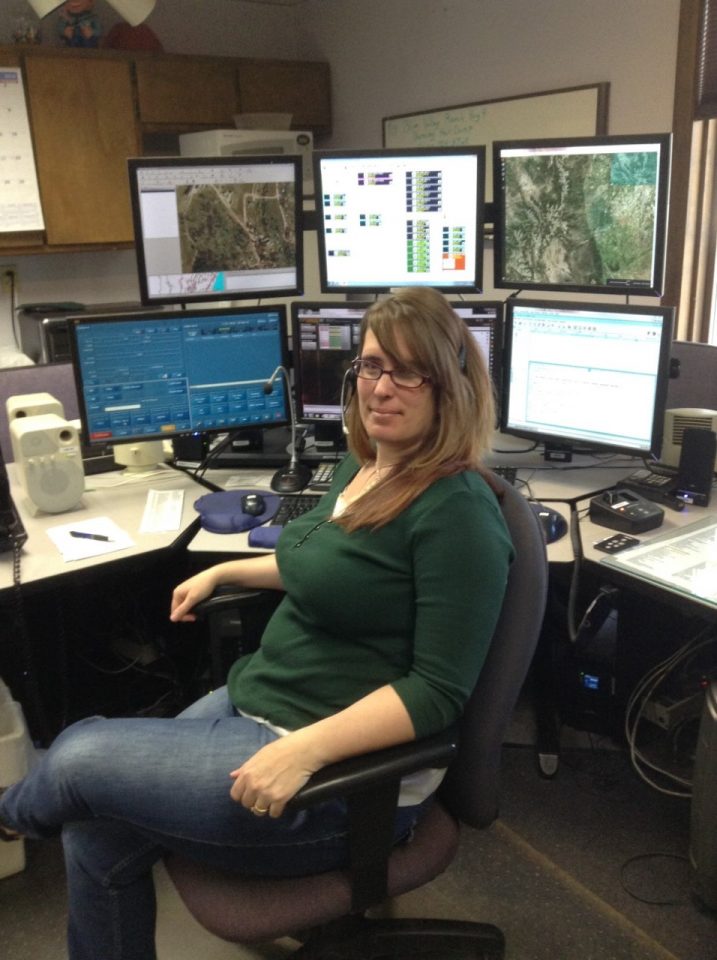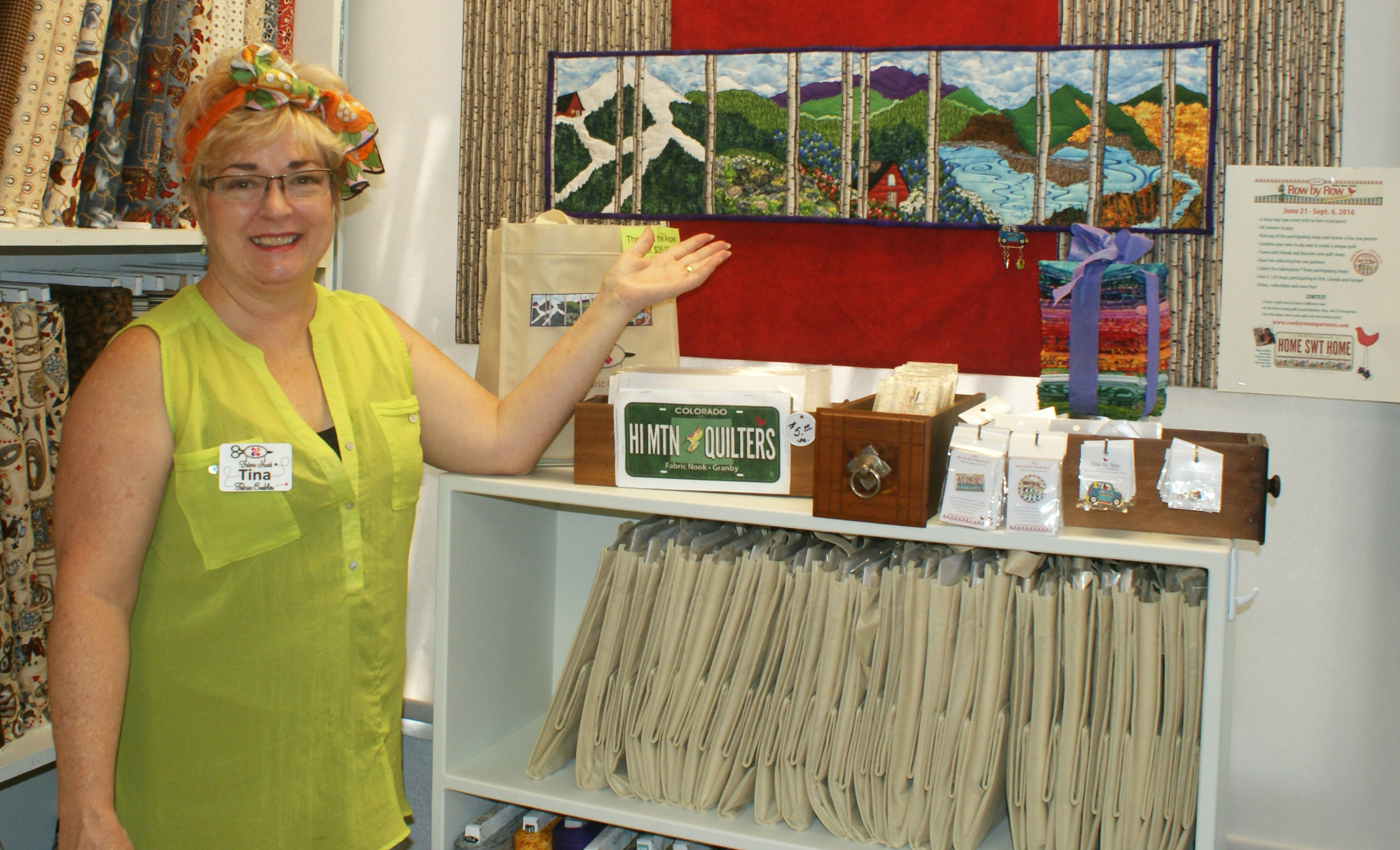by Nina Wood

sits in front of some of the monitors in her position
in the communications center at the Grand County
Sheriff’s Office.
Last week was National Telecommunications Week in honor of those men and women who are on the other end of the line when you dial 9-1-1. The job is not one for just anybody, for rewarding as it can be and is for those who are successful at it, it is also difficult Someone has to be on duty 24/7/365 and deal with members of the public who are likely NOT having the best day of their life if they need to call. They also work with police officers on the street and on patrol whose safety depends a great deal on those in the communications center.
Working in 9-1-1 requires an almost equal blend of training, experience, and intuition. When your contact is by phone, only 25% of the information you’d have from face to face contact is available, leaving you to listen to what is said, what’s not said, background noise, etc., and knowing what questions to ask in order to know what kind of response is needed. And perhaps one of the hardest factors in the equation is learning how to detach in order to bring order to chaos when you have someone hysterical on the other end of the line.
If you’ve heard tapes of emergency calls, you almost always hear the dispatcher say, “You need to calm down so I can understand you.” Even to me ( and I was in a comm center for quite a few years), telling someone to calm down when they have just found their baby not breathing seems unreasonable. But in order to help, a dispatcher has to take control, keeping themselves from being brought into the panic of the situation. Getting the best details possible, helps ensure the safety of everyone involved.
Is it easy? If it was, anyone could do it. Women tend to be more successful in the job than men. Lt. Jeff Bauckman who is the overall dispatch supervisor for Grand County Sheriff’s Office says he thinks it’s because woman are better at multi-tasking. But his communications center has both men and women, all highly trained to monitor multiple radios and numerous agencies.
So before the week is over, take a minute to think about those folks behind the desk and in front of a radio microphone who provide a lifeline to you and all those who need help and in a hurry. Thank you, dispatchers, for your service.








